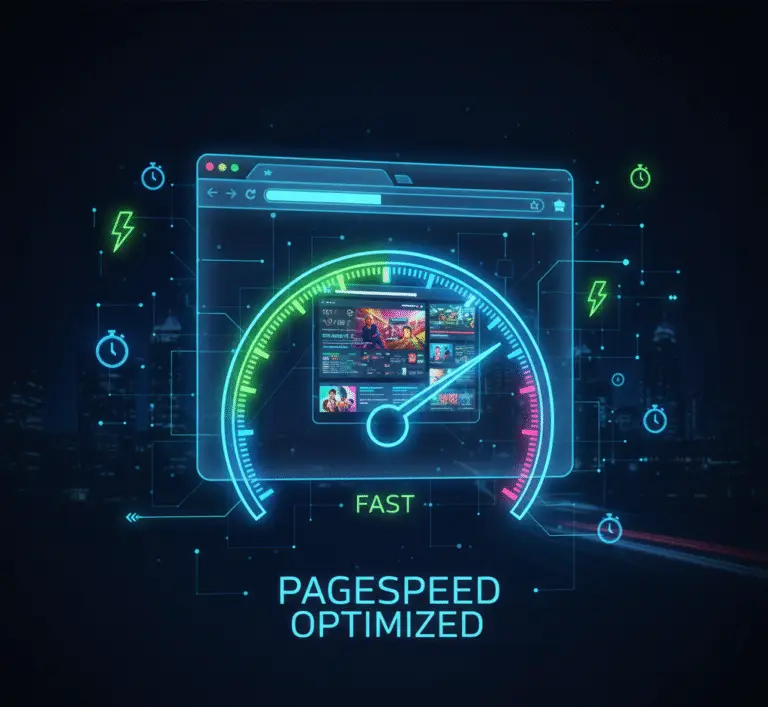SEO Guide 2025: Strategies to Rank Higher and Drive More Traffic
By Mohammed · October 2025 ·
Introduction
Every year, search engines change the rules a little. What worked in SEO last year may not work today. In 2025, businesses are competing in a space where Google is smarter, AI plays a role in ranking, and users expect faster, cleaner websites.
This guide gives you simple, practical steps you can follow. No jargon, no guesswork — just what matters right now if you want to show up higher in search and bring the right people to your website.

Be a Real Expert (E-E-A-T is Key)
The biggest rule in SEO for 2025 is E-E-A-T: Experience, Expertise, Authoritativeness, and Trustworthiness.
• Show You’ve Done It: Don’t just explain something—prove you’ve done it. Add your own steps, screenshots, or photos.
• Who Wrote This? Every article should have a clear author bio. People (and search engines) want to know why you’re qualified.
• Be a Trustworthy Site: Secure your site with HTTPS, share real contact details, and build a good reputation. Trust is the base of SEO success.
Make Your Website Fast and Easy to Use

Think of your website like a shop. If it’s slow, messy, or confusing, people will leave — and Google notices that too.
• Speed is Essential: Your site should load in under 2 seconds.
• Mobile-Friendly is a Must: Most people search on their phones, so your site must look perfect on small screens.
• No Jumpy Layouts: Keep your layout stable while it loads. If images and buttons keep shifting, it hurts user experience and your rankings.
How to Write for People and the New AI
In 2025, you’re not only competing with other websites — you’re also competing with Google’s AI summaries that show at the top of results. To stand out, your content must be clear, structured, and genuinely helpful.
Optimize for AI Answers
Google’s AI Overviews give users quick answers. If you want to be included, you need to structure your content so it’s easy for Google to grab.
-
Start your article by answering the main question straight away. Don’t make people scroll forever.
-
Use short, clear sentences that anyone can understand.
-
Break things into steps or lists so it’s easy to skim.
-
Think like a teacher: give the quick takeaway first, then explain the details.
Build Topic Clusters
-
Write one big guide that covers the overall topic.
-
Add smaller posts that go deep into specific points.
-
Link them together so readers (and Google) can move easily between them.
-
Think of it like a book: the guide is the main chapter, and the smaller posts are sub-chapters.
Listen to Real People
-
Check Reddit and Quora to see what people really ask.
-
Look at Google’s “People Also Ask” box for ideas.
-
Turn common questions into short, helpful posts or FAQs.
-
Share your own story, case study, or results — that’s something AI can’t fake.
Technical SEO Essentials
Great content won’t help if your website is slow, broken, or hard for Google to read. Technical SEO makes sure your site runs smoothly and is easy for both visitors and search engines to understand.
Website Speed
-
Aim for your site to load in under 2 seconds.
-
Use tools like Google PageSpeed Insights to find what slows you down.
-
Compress images before uploading (keep them under 200 KB).
-
Use caching to make pages load faster for repeat visitors.
Mobile-Friendly Design
-
Most people use phones to search — your site must look perfect on mobile.
-
Test your pages using Google’s Mobile-Friendly Test.
-
Keep buttons large enough to tap easily.
-
Avoid popups that block the screen on mobile.
Core Web Vitals
-
Largest Contentful Paint (LCP): page loads fast.
-
First Input Delay (FID): site responds quickly when users click.
-
Cumulative Layout Shift (CLS): page stays stable, no jumping text/images.
Crawlability & Indexing
-
Make sure your site has a working XML sitemap.
-
Keep your robots.txt file clean (don’t block important pages).
-
Use internal links to help Google discover all pages.
-
Check Google Search Console for indexing issues.
Common SEO Mistakes to Avoid
Even experienced marketers slip up with SEO. Here are the most common mistakes that hurt rankings in 2025.
-
Keyword stuffing: Forcing the same word again and again makes content hard to read.
-
Ignoring mobile users: If your site looks bad on a phone, visitors will leave.
-
Not updating old posts: Outdated content drops fast in rankings.
-
Weak internal links: Don’t let good pages stay hidden — link them together.
-
Over-optimization: Using the exact same anchor text everywhere can look spammy.
Best SEO Tools
You don’t need dozens of tools — just a few reliable ones to track, research, and improve your SEO. Here are the must-haves for 2025:
-
Google Search Console: Free tool to see what keywords you rank for and fix issues.
-
Google Analytics 4: Track traffic, user behavior, and conversions.
-
SEMrush / Ahrefs: Paid tools for keyword research, backlinks, and competitor analysis.
-
Alsoasked: Great for discovering the real questions people ask.
Conclusion
SEO in 2025 is all about trust, speed, and clear answers. If you focus on E-E-A-T, write content people and AI can understand, keep your site fast, and use the right tools, you’ll be ahead of most competitors.
Remember — SEO is a long game. Stay consistent, and results will follow.
Table of Contents
• Introduction
• Be a Real Expert (E-E-A-T)
• Make Your Website Fast and Easy
• How to Write for People & AI
• Technical SEO Essentials
• Common SEO Mistakes
• Best SEO Tools
• Conclusion
